
Happy mapping starts here
Planning a website can seem overwhelming. A solid sitemap is a great way to start the process. It’s like having a roadmap for a cross-country trip, helping you stay on the right path even if you take a few detours.
Thankfully, AI has come to the rescue with some excellent sitemap tools that make this crucial first step much easier. As fellow marketers, we’ve wrestled with our fair share of website projects, trying many options, and here are the ones that stand out.
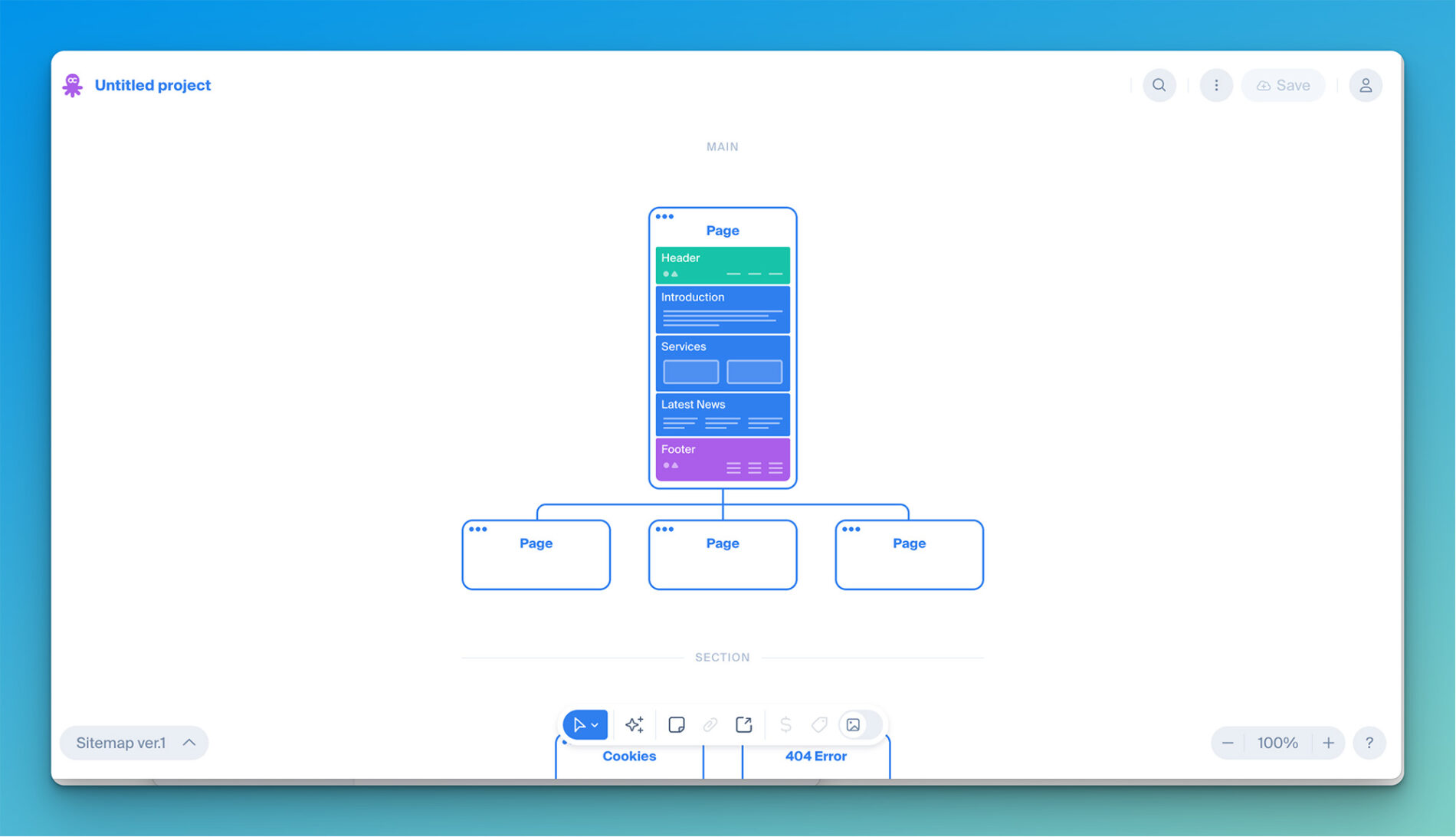
1. Octopus
We love Octopus for its low-fidelity approach, which keeps you focused on the content. Its main advantage is that it is incredibly user-friendly. You can dive in and start outlining your site structure within minutes, with no steep learning curve necessary. It has become our go-to tool when we need to quickly visualize a website and define content blocks for each page.
The drag-and-drop interface is super intuitive, and the AI features generate content suggestions that make sense for different page types. If you’re looking for a straightforward tool that delivers results without overwhelming you with complexity, Octopus is definitely worth checking out.
Key features :
- AI-generated sitemaps from text descriptions of your website goals
- Visual sitemap generation from existing websites with one-click crawling
- Low-fidelity wireframes to visualize page content and structure
- Ability to generate relevant text for any content block
- SEO tag generation for improved search visibility
- XML sitemap export for submission to search engines
- Collaborative tools for team and client feedback
- Color-coding options for better visual organization
2. Elementor AI Site Planner
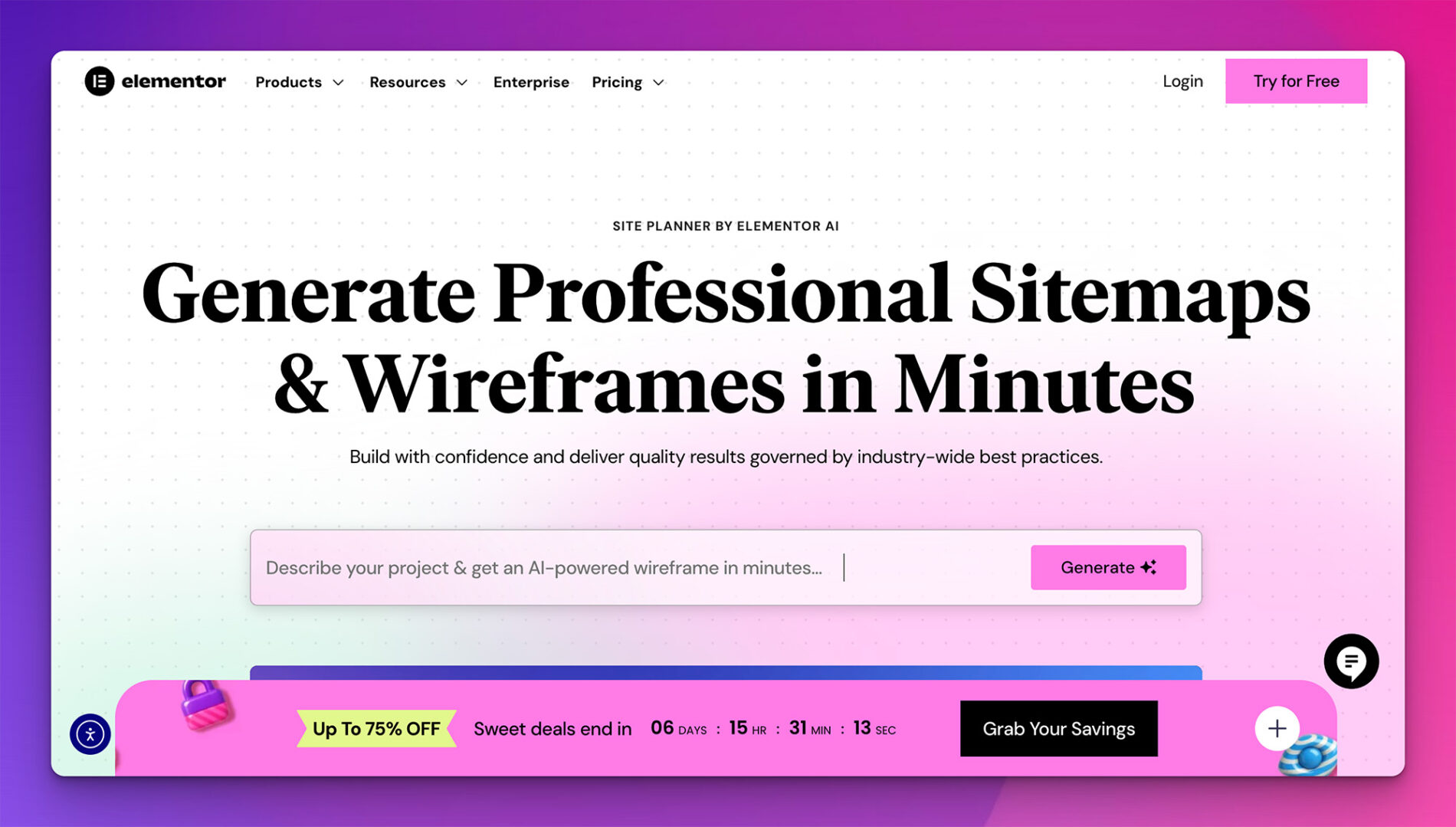
Have you ever gazed into a blank screen, wondering where to begin? If so, you’ll appreciate Elementor AI Site Planner. This tool is great because it lets AI initiate the process, and you take it from there. Instead of starting from scratch, you have a conversation with the AI about your business needs, and it generates a complete site structure that you can refine. We love how it eliminates that intimidating “blank page syndrome” and jumpstarts the creative process.
Key features :
- AI-led conversation to understand your business needs
- Automatic generation of comprehensive site briefs
- Complete sitemap creation in minutes
- Wireframes pre-filled with AI-generated content
- Seamless integration with Elementor’s drag-and-drop editor
- No coding skills required
- Direct implementation in WordPress
3. Relume Sitemap Builder
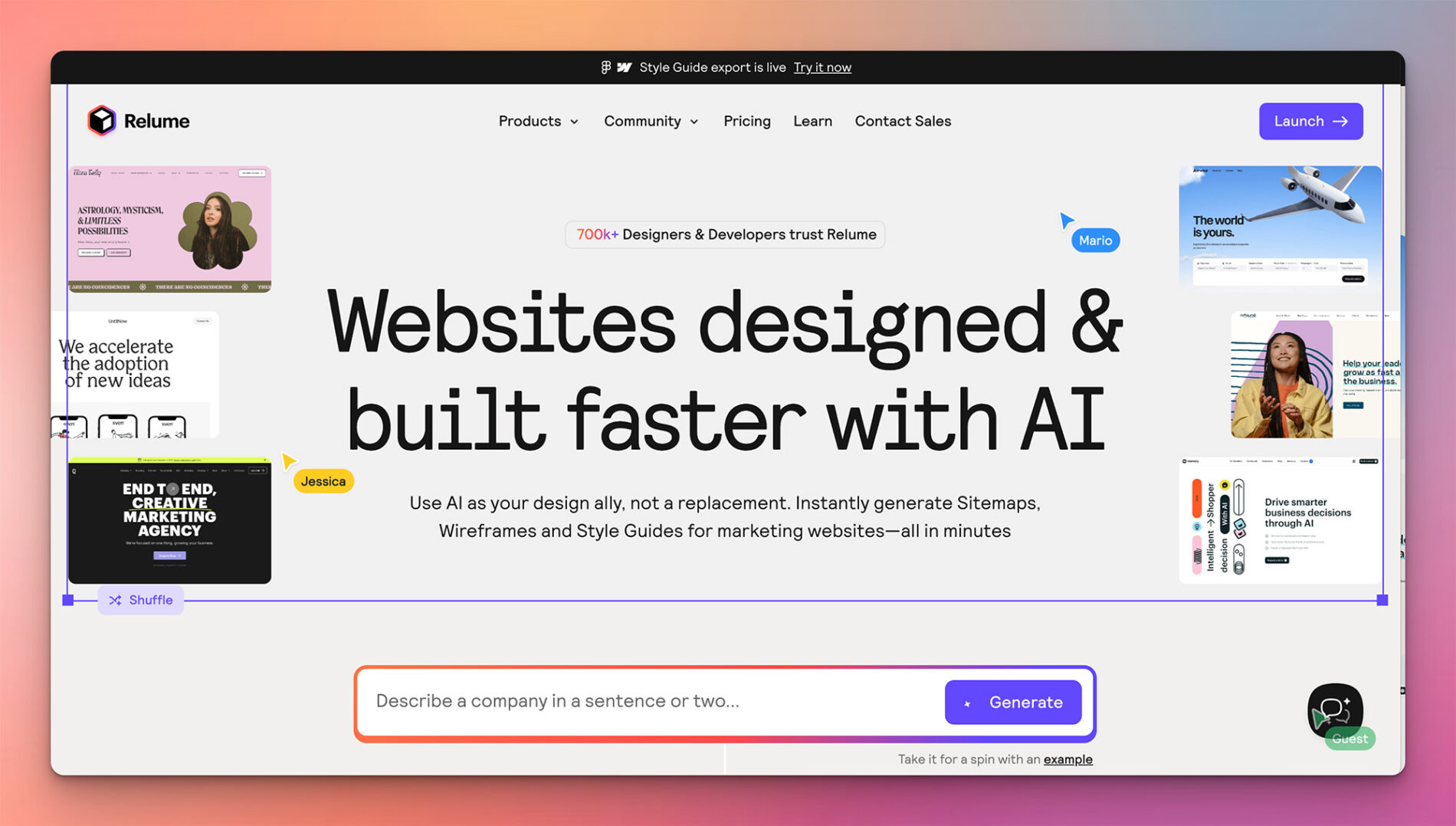
We’re fans of Relume Sitemap Builder because it transitions seamlessly from sitemap to content to high-fidelity designs, and then into design tools like Figma. It’s that smooth transition between project phases that makes your workflow so much more efficient.
The way Relume connects site structure directly to actual design components feels almost magical, especially when managing brand consistency across different marketing campaigns. If you’re tired of the disconnect between information architecture and visual design, you’ll appreciate how Relume creates a unified journey from concept to implementation.
Key features :
- AI-assisted project scoping
- Component recommendations based on site structure
- Collaboration tools for client feedback
- Integration with the Relume component library
- Mobile-responsive sitemap visualization
- Design system consistency
- Seamless export to design tools like Figma
4. Slickplan
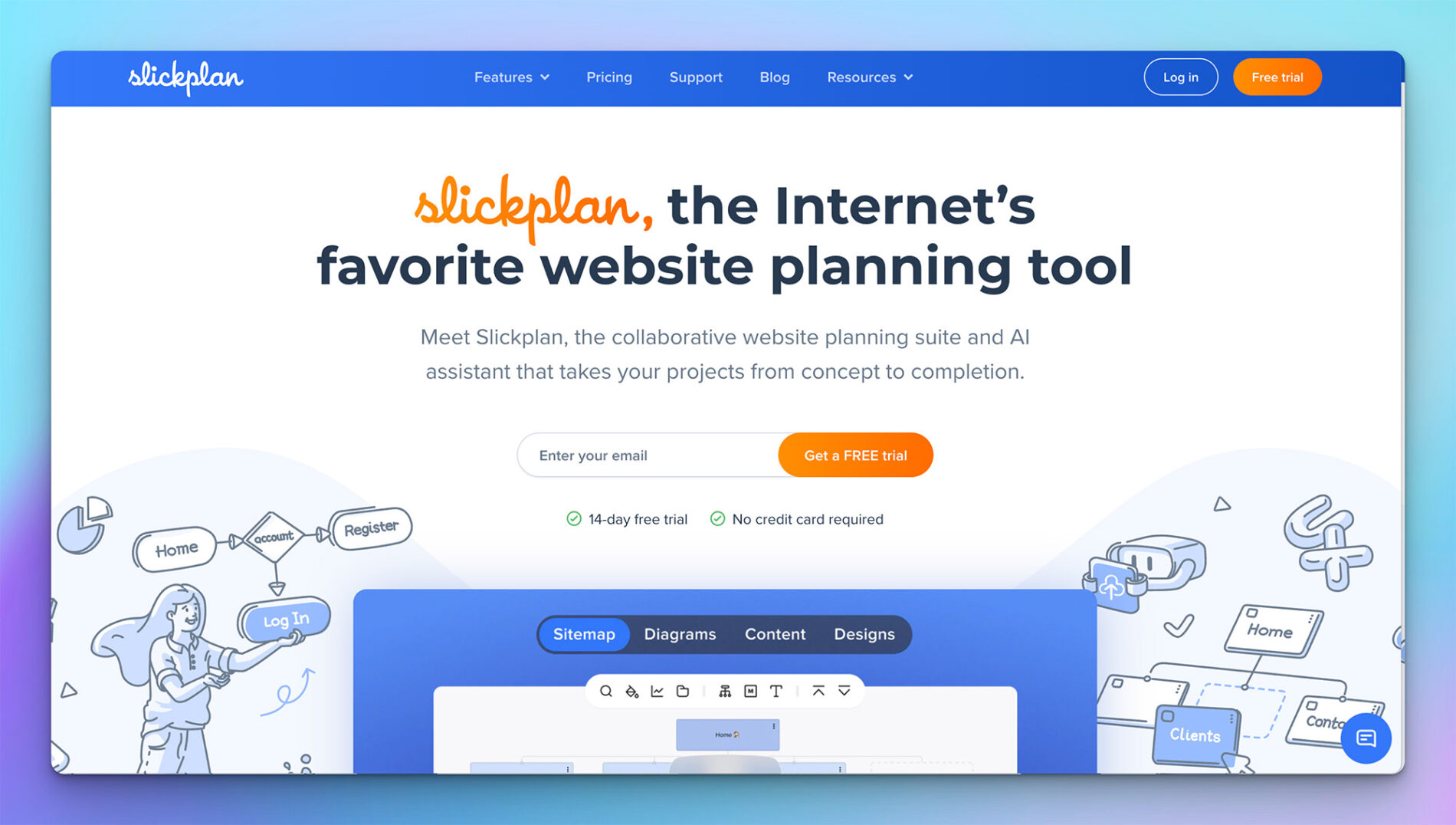
Slickplan has been a trusted site mapping tool for a while. It strikes a good balance between being comprehensive without becoming too complicated. Slickplan offers a depth of features, including new AI tools. It’s ideal for agencies managing multiple websites or in-house teams coordinating across departments. The way it handles feedback and revision tracking makes the client approval process very smooth.
Key features :
- AI assistant for page organization recommendations
- Real-time collaboration with team members and clients
- Google Analytics integration for traffic insights
- SEO tools, including an XML sitemap generator
- Design mockup integration with Figma
- Content planning capabilities
- Diagram and flowchart creation
5. VisualSitemaps
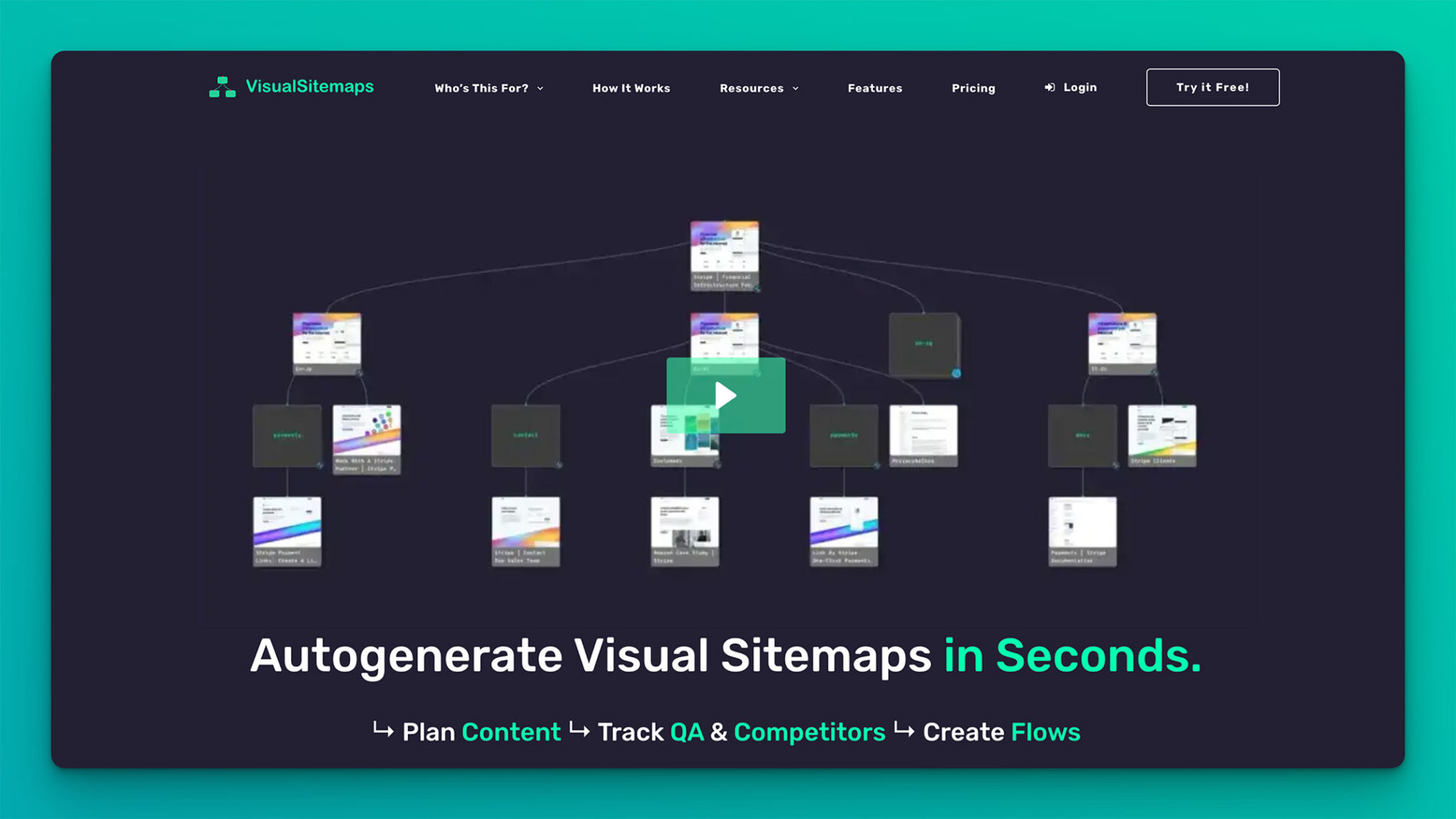
If you want to start your sitemap by pulling from your existing website, then VisualSitemaps is the tool you need. VisualSitemaps uses AI to automatically crawl your website and generate visually appealing sitemaps with actual page screenshots, offering a more realistic preview of your site structure. If you need to edit and refine your sitemap, it’s super easy. Just use their drag ‘n drop interface to refine existing sections and add new sections with ease.
Key Features:
- Automatic website crawling and mapping
- Visual representation with real page screenshots
- AI-powered page categorization
- Interactive site navigation
- Multiple export formats
- Collaboration features
- Password-protected site crawling
And the winner is?
Whichever tool you choose, you really can’t go wrong! We’ve seen firsthand how these AI-powered sitemap tools can transform what used to be a headache-inducing process into something almost enjoyable. Here at Echo, Octopus is our favorite as its low fidelity approach allows us to focus on the planning side without being distracted. We love how you can create content sections within each page and its ease of use is second to none.
Need help planning your website? Send us a message. We’re always happy to discuss website planning and help you determine the best approach for your project.


